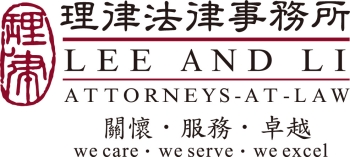In Taiwan, trademark registration is on a first-to-file basis, and actual use of the trademark is not a prerequisite for an application for its registration. The Trademark Act affords the trademark rights to the applicant that first files the application, whereby an originally non-registered trademark is transformed into the applicant's private right.
However, the function of a trademark and the purpose of its registration are not merely about acquiring trademark rights. It is only through actual use that consumers may come to associate the trademark with the particular goods or services, so that the mark can:
- be used to identify the source;
- guarantee quality;
- advertise the goods or services; and
- realise the trademark's value.
If a junior trademark – filed later than a registered similar senior trademark – is more famous than the registered senior trademark, the junior trademark should be granted registration as an exception to the first-to-file rule due to reverse confusion.
The IP Court adopted the reverse confusion doctrine in 2015 and granted registration for a trademark that was filed later than a similar senior trademark, but deemed to be more famous in Taiwan. The Supreme Administrative Court reversed the IP Court judgment in 2016 and held that the first-to-file rule, as stipulated by the Trademark Act, should be consistently cited for protection of a registered senior trademark. The Supreme Administrative Court specifically rejected the reverse confusion doctrine, which will be a critical guideline for reviewing trademark registration issues in the future.
For further information on this topic please contact Ruey-Sen Tsai at Lee and Li Attorneys at Law by telephone (+886 2 715 3300) or email ([email protected]). The Lee and Li website can be accessed at www.leeandli.com.
This article was first published by the International Law Office, a premium online legal update service for major companies and law firms worldwide. Register for a free subscription.



